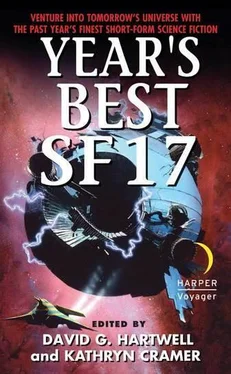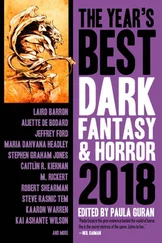“Ha ha!” Egorov craned his neck to look back at the dwindling town lights. “Semey, eh? You’re going to Semipalatinsk, aren’t you?”
“To look at the Tsarina site, yes. Whose side does that put me on?”
“Sides?” Egorov crossed his arms and glared out the windshield. “I don’t know about sides.”
“It was an honest question.”
“I believe you. But I don’t know. Except for them, ” he added, jabbing a thumb back at the town. “I know they’re bad guys.”
“Why? And why are they interested in Ambrose?”
“Same reason we are. Because of what he saw.”
Gennady took a deep breath. “Okay. Why don’t you just tell me what you know? And I’ll do the same?”
“Yes, all right.” The utter blackness of the night-time steppe had swallowed them; all that was visible was the double-cone of roadway visible in the car’s headlamps. It barely changed, moment to moment, giving the drive a timelessness Gennady would, under other circumstances, have quite enjoyed.
“We data-mine records from the Soviet era,” began Egorov. “To find out what really went on. It’s lucrative business, and it supports the Union of Soviet Socialist Republics Online.” He tapped his glasses.
“A few weeks ago, we got a request for some of the old data—from the Americans. Two requests, actually, a day apart: one from the search engine company, and the other from the government. We were naturally curious, so we didn’t say no; but we did a little digging into the data ourselves. That is, we’d started to, when those men burst into our offices and confiscated the server. And the backup.”
Gennady looked askance at him. “Really? Where was this?”
“Um. Seattle. That’s where the CCCOP is based—only because we’ve been banned in the old country! Russia’s run by robber barons today, they have no regard for the glory of—”
“Yes, yes. Did you find out what they were looking for?”
“Yes—which is how I ended up with these travel companions you saw. They are in the pay of the American CIA.”
“Yes, but why? What does this have to do with the Tsarina ?”
“I was hoping you could tell me. All we found was appropriations for strange things that should never have had anything to do with a nuclear test. Before the Tsarina was set off, there was about a year of heavy construction at the site. Sometimes, you know, they built fake towns to blow them up and examine the blast damage. That’s what I thought at first; they ordered thousands of tonnes of concrete, rebar and asbestos, that sort of thing. But if you look at the records after the test, there’s no sign of where any of that material went. ”
“They ordered some sort of agricultural crop from SNOPB,” Gennady ventured. Egorov nodded.
“None of the discrepancies would ever have been noticed if not for your friend and whatever it is he found. What was it, anyway?”
A strange suspicion had begun to form in Gennady’s mind, but it was so unlikely that he shook his head. “I want to look at the Tsarina site,” he said. “Maybe that’ll tell us.”
Egorov was obviously unsatisfied with that answer, but he said nothing, merely muttering and trying to get himself comfortable in the Tata’s bucket seat. After a while, just as the hum of the dark highway was starting to hypnotize Gennady, Egorov said, “It’s all gone to Hell, you know.”
“Hmm?”
“Russia. It was hard in the old days, but at least we had our pride.” He turned to look out the black window. “After 1990, all the life just went out of the place. Lower birth-rate, men drinking themselves to death by the age of forty … no ambition, no hope. A lost land.”
“You left?”
“Physically, yes.” Egorov darted a look at Gennady. “You never leave . Not a place like this. For many years now, I’ve struggled with how to bring back Russia’s old glory—our sense of pride. Yet the best I was ever able to come up with was an online environment. A game .” He spat the word contemptuously.
Gennady didn’t reply, but he knew how Egorov felt. Ukraine had some of the same problems—the lack of direction, the loss of confidence … It wasn’t getting any better here. He thought of the blasted steppes they were passing through, rendered unlivable by global warming. There had been massive forest fires in Siberia this year, and the Gobi desert was expanding north and west, threatening the Kazaks even as the Caspian Sea dwindled to nothing.
He thought of SNOPB. “They’re gone,” he said, “but they left their trash behind.” Toxic, decaying: nuclear submarines heeled over in the waters off Murmansk, nitrates soaking the soil around the launch pads of Baikonur. The ghosts of old Soviets prowled this dark, as radiation in the groundwater, mutations in the forest, poisons in the all-too-common dust clouds, Gennady had spent his whole adult life cleaning up the mess, and before yesterday he’d been able to tell himself that it was working—that all the worst nightmares were from the past. The metastables had changed that, in one stroke rendering all the old fears laughable in comparison.
“Get some sleep,” he told Egorov. “We’re going to be driving all night.”
“I don’t sleep much anymore.” But the old man stopped talking, and just stared ahead. He couldn’t be visiting his online People’s Republic through his glasses: those IP addresses were blocked here. But maybe he saw it all anyway—the brave young men in their trucks, heading to the Semipalatinsk site to witness a nuclear blast. The rail yards where parts for the giant moon rocket, doomed to explode on the pad, were mustering … With his gaze fixed firmly on the past, he seemed the perfect opposite of Ambrose with his American dreams of a new world unburdened by history, whose red dunes marched to a pure and mysterious horizon.
The first living thing in space had been the Russian dog Laika. She had died in orbit—had never come home. If he glanced out at the star-speckled sky, Gennady could almost see her ghost racing eternally through the heavens, beside the dead dream of planetary conquest, of flags planted in alien soil and shining domes on the hills of Mars.
They arrived at the Tsarina site at 4:30. Dawn, at this latitude and time of year. The Semipalatinsk Polygon was bare, flat, blasted scrubland: Mars with tufts of dead weed. The irony was that it hadn’t been the hundreds of nuclear bombs set off here that had killed the land; even a decade after the Polygon was closed, the low rolling hills had been covered with a rich carpet of waving grass. Instead, it was the savage turn of the climate, completely unpredicted by the KGB and the CIA, that had killed the steppe.
The road into the Polygon was narrow blacktop with no real shoulder, no ditches, and no oncoming traffic—although a set of lights had faded in and out of view in the rearview mirror all through the drive. Gennady would have missed the turnoff to the Tsarina site had his glasses not beeped.
There had been a low wire fence here at one time, but nobody had kept it up. He drove straight over the fallen gate, now becoming one with the soil, and up a low rise to the crest of the water-filled crater. There he parked and got out.
Egorov climbed out too and stretched cautiously. “Beautiful,” he said, gazing into the epic sunrise. “Is it radioactive here?”
“Oh, a little … That’s odd.”
“What?”
Gennady had looked at the satellite view of the site on the way here; it was clear, standing here in person, that the vertical perspective had lied. “The Tsarina was supposed to be an underground test. You usually get some subsidence of the ground in a circle around the test site. And with the big ground shots, you would get a crater, like Lake Chagan.” He nodded to the east. “But this … this is a hole. ”
Читать дальше












